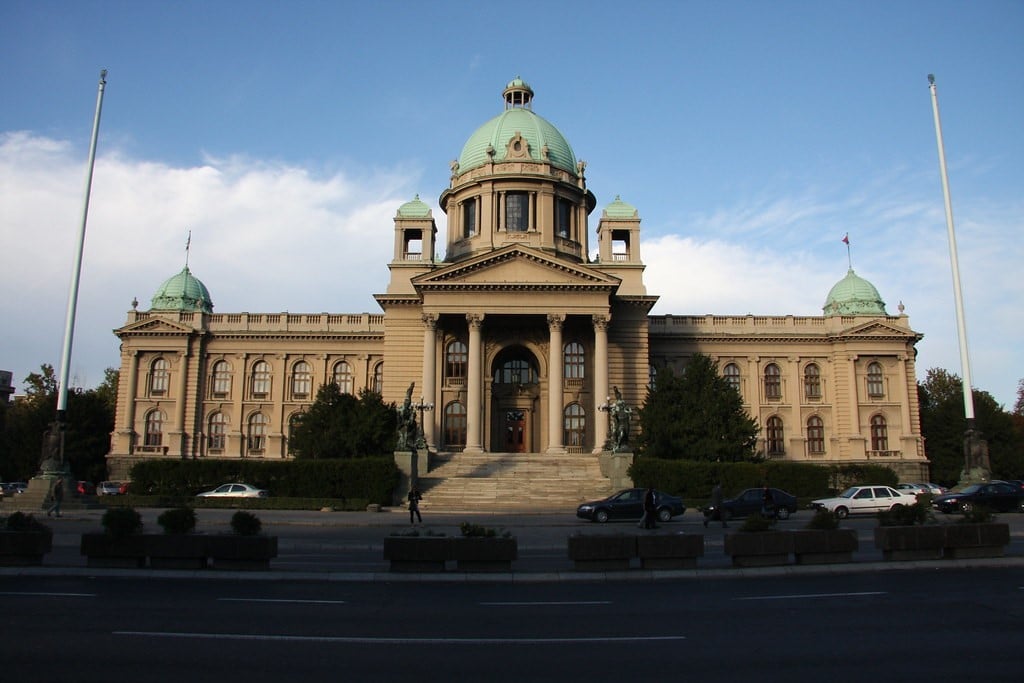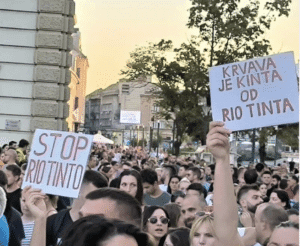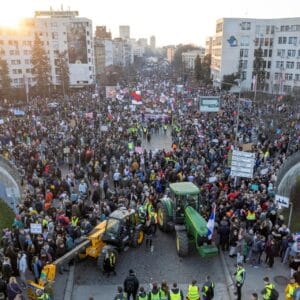Worried citizens in western Serbia and environmental protestors took to the streets on November the 27th in order to protest against a new mining project and two new laws which they say will give free rein to foreign mining companies. Serbia’s government has offered mineral resources to foreign companies such as the Australian-British Rio Tinto which wants to exploit lithium in the country. However, green activists argue that the projects can pollute land and water in Serbia. Pollution is already a major issue in Serbia, with the state being one of the most polluted countries in Europe.
One of the laws that the protestors advocated against is a new expropriation law that allows for the mandatory acquisition of private land by the state. Protestors are also angry about a new law that resulted in a referendum reform which will lead to hefty administrative fees for holding a referendum. Activists argue that this will prevent popular initiatives against polluting projects.
Skirmishes with the police
While protesting against the two new laws and the mining project by Rio Tinto, protestors blocked roads in the capital of Belgrade and several other towns. In Belgrade, the police tried to prevent protestors from reaching bridges in the city, which led to skirmishes. Organizers said that several people had been detained. The police also detained several protestors in the city of Novi Sad after confrontations with the police.
On Sunday the 28th thousands of people again took to the streets to urge the government to start applying laws against the biggest environmental polluters and to change its attitude towards environmental issues. Activists have threatened with further actions if the laws on the referendum and property expropriation are not withdrawn. President Vucic’s government has said that it will arrange a referendum to test support for Rio Tinto’s mining project.



